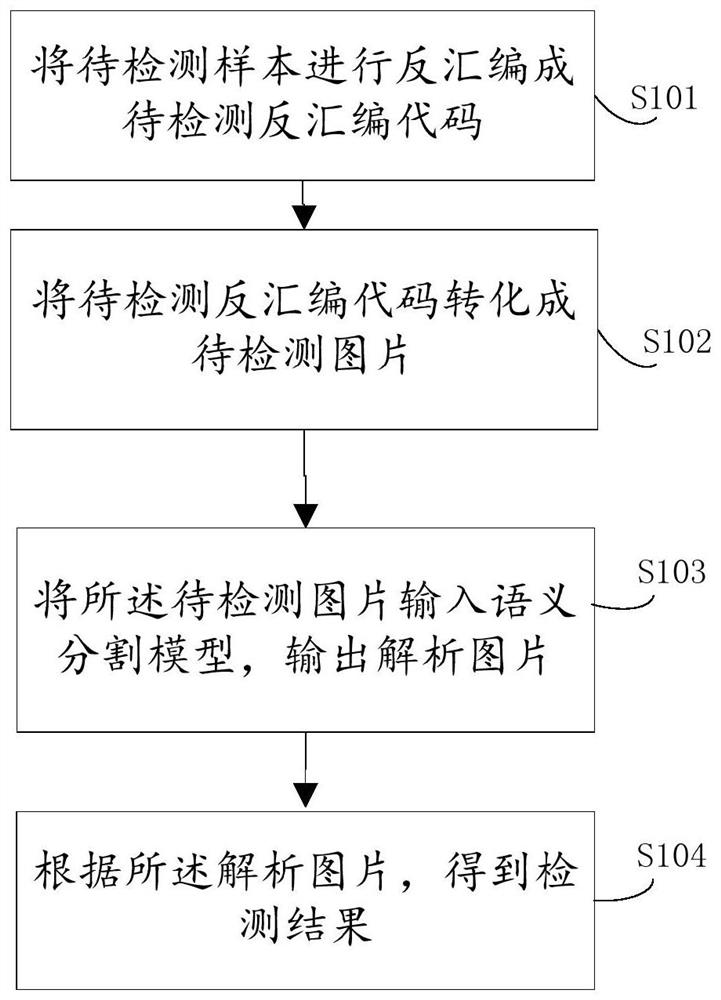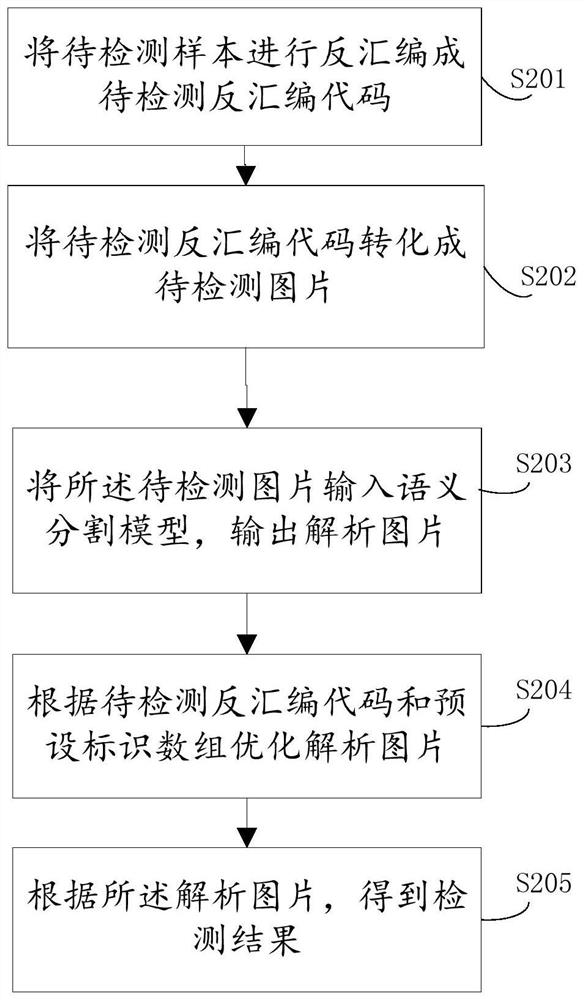Method and device for rapid detection of malware genes based on semantic segmentation
A semantic segmentation and malware technology, applied in the field of information security, can solve problems such as poor accuracy of gene recognition, inability to embed gene banks into security products or offline deployment, low efficiency of conventional retrieval and matching methods, etc.
- Summary
- Abstract
- Description
- Claims
- Application Information
AI Technical Summary
Problems solved by technology
Method used
Image
Examples
Embodiment 1
[0049] Due to the problems of conventional malware gene matching techniques, a semantic segmentation model is proposed to detect malware genes.
[0050] Semantic segmentation is a fundamental task in computer vision, in which we need to classify visual inputs such as pictures into different semantically interpretable categories that are meaningful in the real world. For example: mark all pixels belonging to cars in the image that needs to be distinguished as blue. Compared with image classification or object detection, semantic segmentation has a more detailed classification and identification of images. This makes it a core technology in many fields such as autonomous driving, robotics, and image search engines. Combining semantic segmentation technology with malware genetic detection can alleviate some problems in current malware genetic detection.
[0051] see figure 1 Shown is a flow chart of a method for rapid detection of malware genes based on semantic segmentation. ...
Embodiment 2
[0066] see image 3 Shown is a flow chart of rapid detection of malware genes based on semantic segmentation. The method is implemented on the basis of the rapid detection method of malware genes based on semantic segmentation provided in Embodiment 1, and specifically includes the following steps:
[0067] S201. Disassembling the sample to be detected into a disassembly code to be detected;
[0068] Wherein, the sample to be detected may be a file in text form or a file in binary code.
[0069] S202. Convert the disassembly code to be detected into a picture to be detected;
[0070] Specifically, the disassembly code is converted into a picture to be detected according to the conversion rules, wherein the picture to be detected is a grayscale image. The conversion rules are pre-set. For example, "0011" appears in the disassembly code, which means that the image has a square block.
[0071] S203. Input the image to be detected into the semantic segmentation model, and outpu...
Embodiment 3
[0078] For the method for rapid detection of malware genes based on semantic segmentation provided in the foregoing embodiments, the embodiment of the present invention provides a device for rapid detection of malware genes based on semantic segmentation, see Figure 4 A structural block diagram of a device for rapid detection of malware genes based on semantic segmentation, the device includes the following parts:
[0079] The disassembly module 41 is used to disassemble the sample to be detected into the disassembly code to be detected;
[0080] Conversion module 42, for converting the disassembly code to be detected into a picture to be detected;
[0081] Parsing module 43, for inputting described to-be-detected picture into semantic segmentation model, output analysis picture;
[0082] The detection module 44 is configured to obtain a detection result according to the analyzed picture.
[0083] Further, the device also includes a training module 45;
[0084] The trainin...
PUM
 Login to View More
Login to View More Abstract
Description
Claims
Application Information
 Login to View More
Login to View More - R&D
- Intellectual Property
- Life Sciences
- Materials
- Tech Scout
- Unparalleled Data Quality
- Higher Quality Content
- 60% Fewer Hallucinations
Browse by: Latest US Patents, China's latest patents, Technical Efficacy Thesaurus, Application Domain, Technology Topic, Popular Technical Reports.
© 2025 PatSnap. All rights reserved.Legal|Privacy policy|Modern Slavery Act Transparency Statement|Sitemap|About US| Contact US: help@patsnap.com



